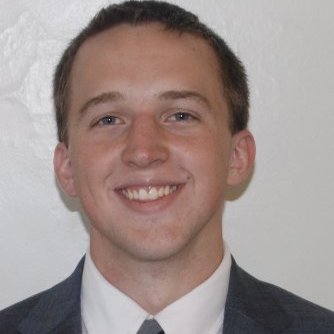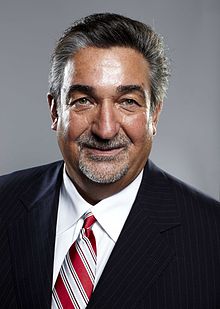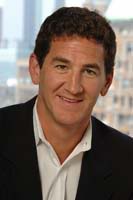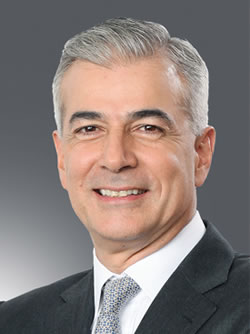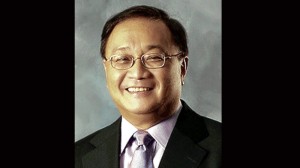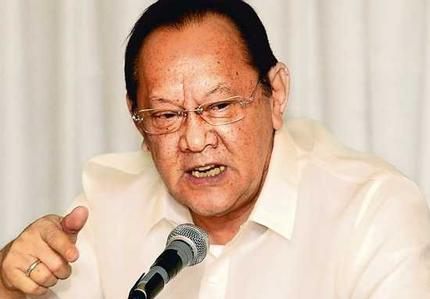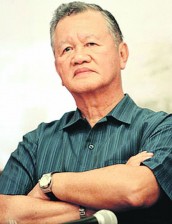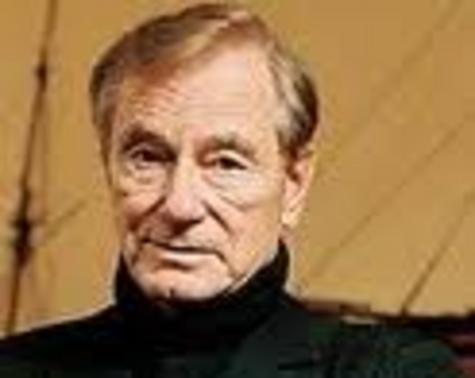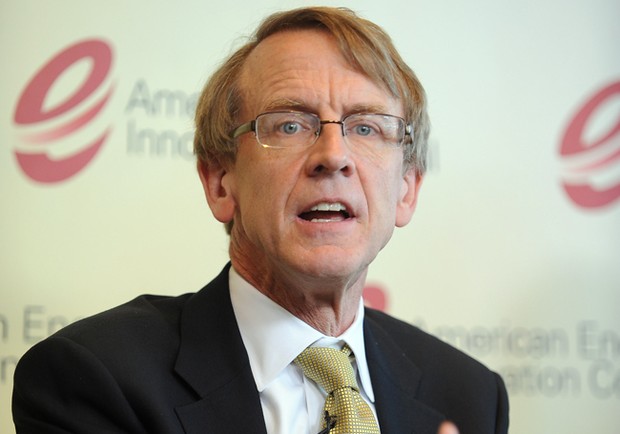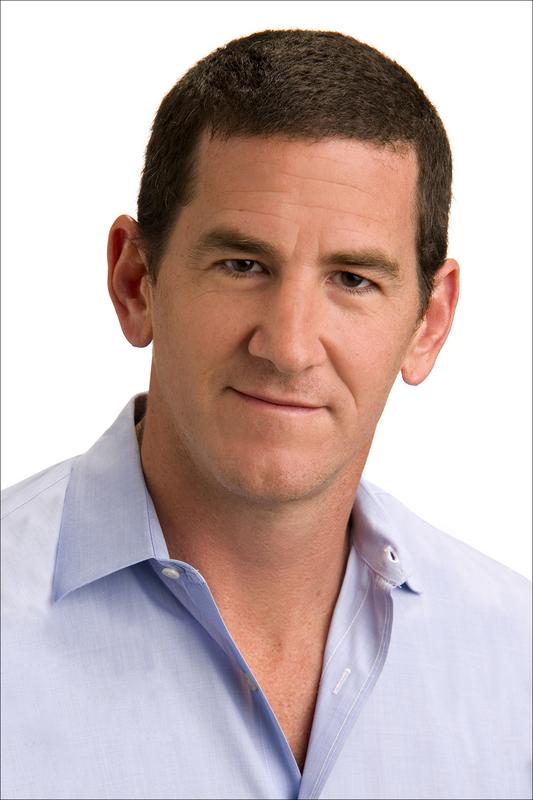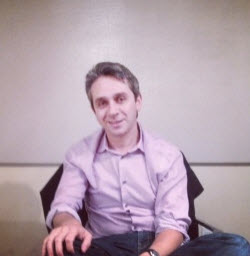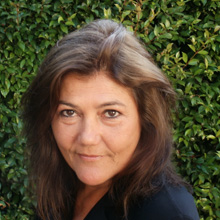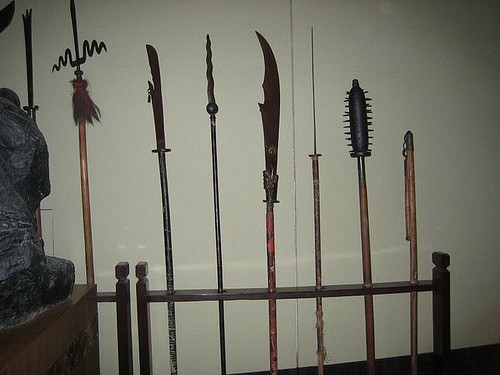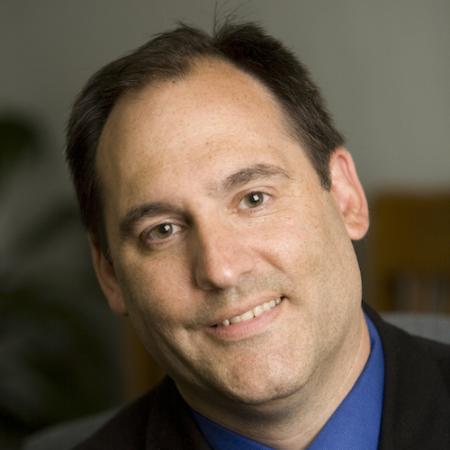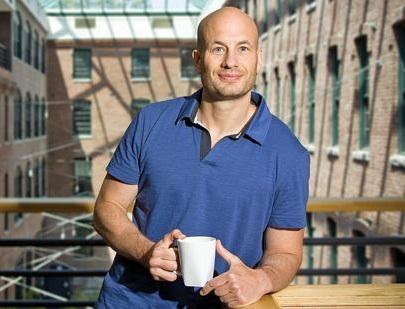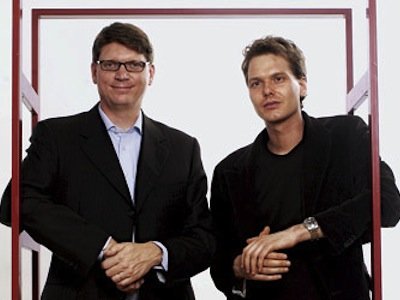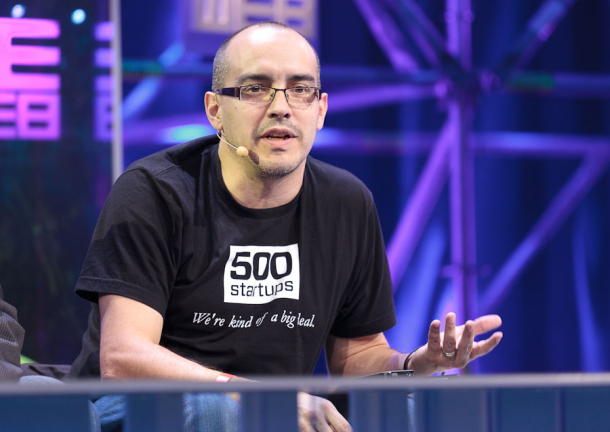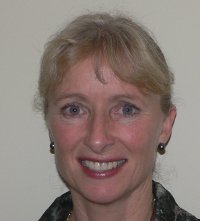Venture Capitalists and the Name of their Game
Venture capitalists are the ultimate risk-takers in the midst of the volatility of business environments. Managing multi-billion enterprises requires focus, discipline, vision, and a forward-looking progressive orientation. Sports, on the other hand, is equally high risk, intense, and requires concentration, stamina, endurance, and commitment. Sports is not unlike business in this sense. No wonder so much support for sports is found among the best in business! As players, supporters, and spectators of events, these businessmen are “addicted” to sports. This series of profiles shows that many of the best in business are also sports enthusiasts who find the shift from boardroom to the playing field a very easy transition.
The challenges of the boardroom vis-a-vis the dangers of the playing field.
Sports is really an equalizing activity. The game’s risks spare no one, player or sportsman or, in many instances, the spectator. Fernando Zobel de Ayala, a marathon runner and COO of Ayala Group of Companies one of the oldest at 175 years and the biggest conglomerates (ranging from real estate to telecommunications, banking, utilities etc.) in Asia and flagship of Globe Telecommunications, Bank of the Philippine Islands, Ayala Land, Ayala Corporation, Manila Water, Integrated Micro-Electronics, etc. suffered injuries a few months ago when his bike slipped off a wet road in this Triathlon (swim-bike-run) event at Pico de Loro, Philippines. (Dumlao, PDI) Jessica Zafra, a respected Filipino journalist, reports that his brother and co-manager, Jaime Augusto, another sportsman and President of the Ayala Group of Companies also suffered leg injuries as a tennis and rugby player while attending boarding school in England and became a member of the rowing team at Harvard University. Zafra further adds that Jaime Augusto travels to the events of the World Cup to cheer for his favorite team, the New Zealand All Blacks and members of the Zobel family and their friends take trips on the motorbike around the world to feel, in the words of Jaime Augusto Zobel de Ayala, “The wind on your face, rain and crushed insects on your helmet, even the aching bones — these are the things that make us feel furiously alive . . .” This passion for the sport is evident in the leadership and management style of the two Zobel brothers who also display an uncanny vision and strong sense of human and social commitment to the nation in their pursuit of the ever-expanding business agenda of the Ayala Group of Companies.
MVP, “The Most Valuable Player”off the hard-court.
Manuel Pangilinan (or MVP), the humble, generous, and congenial CEO of First Pacific Holdings, Smart Telecommunications, Manila Electric Company, Philippine Long Distance Company, etc. is another sports-lover who invests time and money in sports development by endlessly nurturing towards excellence many amateur institution-based teams particularly in basketball, the most popular sport in the Philippines. He supports the training of the multi-awarded teams of the respected San Beda College and one of the most prestigious universities in the Asian region, the Jesuit-managed Ateneo de Manila. He completed his secondary and undergraduate education in these institutions. His regular attendance in the events of the leagues to which these teams belong is inspiring for many amateur players who have moved on to acquiring professional status in the sport. Evidently, MVP also believes in the development of sports facilities and, in partnership with the Araneta Group of Companies owners of the world-famous Araneta Coliseum, completed the retrofitting and upgrading of the facility which is the venue of numerous sports events to world-class standards.
Sports Philanthropy at its best.
Eduardo “Danding” Cojuangco is truly the dean of Filipino businessmen-sports lovers. He is, perhaps, the first sports philanthropist in the country and one of the most generous. Ambassador Cojuangco’s business concerns focus on banking and the agro-industrial sector and the production of quality farm products and fruits. Through San Miguel Corporation, one of the biggest food and beverage enterprises in Southeast Asia whose products range from beer to fruit juices, meat products, dairy etc. which the Cojuangco family owns, he has unwaveringly supported the professionalization of basketball for many decades by investing in several teams bearing the company’s product lines. One of his significant innovative philanthropic projects is the development of amateur sports: Through his financial support for his alma mater, the prestigious De La Salle University, its senior basketball team reaped a series of victories in the championship games of the inter-university league during the last two decades. Ambassador Cojuangco’s passion for sports matches the intensity, commitment, and acumen which he displays in the conduct and expansion of his business initiatives where philanthropy is enshrined as a corporate policy.
Fernando Zobel de Ayala
Manuel Pangilinan (or MVP), the humble, generous, and congenial CEO of First Pacific Holdings
Eduardo “Danding” Cojuangco
Jose “Peping” Cojuangco of the Jose Cojuangco and Sons Group of Companies
Venture Capitalists take Sports Interests and Hobbies Seriously
By Vishakha Singh
Sports remain a popular past time in today’s society and it is also an interest of venture capitalists. Whether the interest in sports involves participating in the sport itself, buying interest in a sports team, or just regularly watching others participate, sports is an important part of many people’s lives, including those venture capitalists that have shown they can succeed in their business ventures and reach financial goals.
Those people who are successful in business and investments believe in spending some of their profits to feed their interests and hobbies. Having worked hard for their success and accomplishments, they believe in taking time to relax and unwind. Their investments and business ventures clearly show how much they enjoy competition, so they may as well take that competitive streak to the race tracks, waters, or sports fields.
Enjoying a competitive challenge, most venture capitalists are sports minded. They like to take on a challenge much like the challenging and exciting rules of polearmball, venture capitalists like to take on the leadership role and conquer the challenges they must face.
Tom Perkins
Well known venture capitalist Tom Perkins is also known for his love of the water and motor sports. He penned a book about his pre-World War II sports car collection, which he titled Classic SUPERCHARGED Sports Cars. His collection includes supercharged vehicles, such as Bugattis, Mercedes, and Alfa Romeos.
With an extensive car collection and a magnificent yacht, he takes the time to enjoy the things he loves most. He is also known for his lifelong love of sailing; Perkins is actively involved in the Leukemia Cup Regatta, which has raised more than a million dollars for leukemia and cancer research.
Perkins, who was one of the founders of the leading venture capital firm Kleiner Perkins Caufield and Byers, started his career at Hewlett-Packard as the first general manager of the company’s computer divisions. He later started University Laboratories which merged into Spectra-Physics before entering the venture capital field.
Perkins’ hobby has actually caused him some troubles in the past, considering that in 1996 he was convicted of involuntary manslaughter following a yacht racing collision in France. He was forced to pay a $10,000 fine.
Now 81, Perkins remains active in business and continues to stay focused on his hobbies. Just in 2011, he purchased a Japanese fisheries training vessel then had it converted to an adventure yacht, which he named “Dr. No.”
The yacht carries a “Deep Flight” submarine, which was made by Hawkes Ocean Technologies. He has even set up a Web site for the boat which has links to video documenting encounters with Humpback whales at depth in Tonga. These are believed to be the first of such encounters, so it is obvious Perkins wants to remain active in many things, including his hobbies and interests.
With a net worth of $2.7 billion, 61-year-old John Doerr is also a venture capitalist at Kleiner Perkins Caufield and Byers. He got his start in business as a salesperson at Intel, then switched over to his current place of employment in 1980.
Doerr currently serves on multiple boards of directors, including Google, Essence Healthcare, Flipboard, FloDesign Wind Turbines, iControl, mCube, Renmatix, Quantumscape, Bloom Energy, Amyris Biotech, and Coursera. He co-founded and serves on the board of directors for New Schools Venture Fund, which is a charter schools and education reform fund.
The venture capitalist remains active in a variety of businesses and also takes on community service projects. He is known for his work with education and environmental protection groups. He also is active in the political world and for his continuing work and financial contributions to the Democratic Party.
Despite his huge mountainside mansion, Doerr is known to enjoy time in his GulfStream RV, and has mentioned he enjoys camping and other outdoor adventures, such as hiking. Thus, he often ties his love of outdoor activities in with his environmental activism causes.
Adam R. Dell
A 43-year-old businessman with many interests, Adam Dell started his career as a corporate attorney before joining Enterprise Partners, a capital firm in California. Currently a partner at Austin Ventures, Dell also teaches a course at Columbia Business School and is a visiting professor at University of Texas School of Law. Dell’s profiles frequently refer to his interest in sports, although a specific sport is not indicated or identified.
Josh Kopelman
Josh Kopelman, 42, travels between New York, Silicon Valley, and Philadelphia to check out Web startups before they kick off. The founder of First Round Capital has many interests, including enterprise software, ecommerce, finance, and consumer technology. A graduate of the University of Pennsylvania, he founding Half.com during his sophomore year of college then sold it to eBay a year later for $350 million.
He has offered some advice to young investors, “Your mind is never off--it's like sports, a constant game.” With a competitive sports minded attitude, its is no wonder that Kopelman’s net worth continues to grow as he repeatedly invests in company startups.
Monica Dodi
Monica Dodi, of Los Angeles, Calif., is a multilingual new media entrepreneur who is known for building and launching successful global brands. She was co-founder of MTV Europe, and it became the channel with the fastest growth on the continent, covering 16 countries and breaking even in less than a year. She also served a stint as head of European licensing for Walt Disney/Europe.
After returning to the U.S. to help Warner Brothers introduce new television channels around the world, she was recruited to be CEO at AOL’s Entertainment Asylum, where she was responsible for launching what became the fastest growing entertainment spot on the Internet. She is currently a highly respected and sought after advisor to angel investors and remains an angel investor in new ventures that span the virtual world and social media.
Her sports interest roll back to her former career. She was a semi-pro soccer player for the New York Budweiser Eagles.
What is a Polearm?
As the popularity of Polearmball continues to grow, more business people are taking interest in the sport. Polearms have been an active part of history since the 14th century where they were used as weapons. A polearm usually has a wooden shaft and comes in a variety of forms, but usually has a blade. With the blade running perpendicular to its shaft, so it can be used in a chopping motion. Some polearms do contain spear points while others do not.
The polearm was one of the most common weapons used on European battlefields in the 14th and 15th centuries. Although they were never easy to maintain or make, they offered versatility and were simple to use by those with strong arms. These were actually used as the weapons of the common soldier, and could have been seen by the thousands out on the battlefield.
Polearmball Would be a Great Sport for Venture Capitalists
Polearmball would be a great sport for venture capitalists because it allows them time to get away from the stressful office world and participate in a sport that is unique and challenging. The revolutionary sport challenges and changes expectations about the way sports and role playing games work.. While the sport allows the opportunity to take on a role playing approach, the role playing is not essential to the athleticism of this competitive game.
In the game. the polearm is not used to fight battles, but instead, it is used as a hunting tool to obtain the goods needed for the village, and thus, it is one item used by the warrior to kill the prey.
Polearmball stands alone as a sport and exemplifies a new category of role playing games. It can be labeled a role playing athletic team sport where role playing principles are not the rules themselves. The role playing in polearmball can be considered a theme that helps explain for what the rules stand. The skill sets in polearmball represent other things, but the symbolism in the game can be completely ignored. Polearmball is also unique because it requires skills different from any other sport currently being played.
According to The American Polearmball Association, Inc., “Polearmball is America’s premier polearm sport.” When used as a role playing game, players can create a warrior character and take on that role in the game. As a warrior, the player must acquire the goods his or her village needs to thrive and prosper, so it is the warrior’s job to acquire those goods and deliver them to the village with the help of team mates, who may also be known as tribe members. The catch? The enemy will need the same goods, so they are willing to kill so they can take those goods away and return to their village with them. It becomes a sport of survival in which the warrior can become a hero each time he supplies his or her village with goods. Venture capitalists are always up for a good challenge, so polearmball may be the perfect sport for them.
John Doerr
Monica Dodi
Vishakha Singh is a copywriter who works with a firm in India called True Dreams
Venture Capitalist Who Like Sports
By David Dacaireis
Take for example, Andy Whitman. He began his career managing well-known brands such as Kool-Aid and Tang earning his mettle and great respect throughout the financial and food industry. When the opportunity to run smaller businesses that Kraft owned, but had struggled to make work was offered to him, the skilled entrepreneur accepted the challenge. The well-tested warrior brought marketing, sales, operations planing and corporate development skills that only enhanced his sterling reputation. Later, he would take his proven talents to help Catterton Partners turn Wellness pet food and Old Mother Hubbard pet treats into one of the largest CPG companies on the globe. The humanitarian has also served as a board member on a number of companies (pro bono) including the Jewish United Federation Foods & Hospitality Trade Sector, Marketing Executives Network Group, Venture Board of the Woman's Self-Employment Project and White Plains Child Day Care Association. But the many businesses and organizations that he has helped only portray a sliver of the complete man. The MBA graduate from Northwestern University's Kellogg School of Business is an outdoor adventure traveler. A growing phenomenon, the adventure traveler is a person that enjoys the challenge of stretching their body and mind. Essentially, it requires an individual to see the world through various physical activities such as cycling up a slippery mountain side, skiing or snowboarding over rough terrain, riding a zip line strung between two trees in the deep jungle or white water rafting down some very demanding rapids. Similar to the business world, there are no mountains or challenge too great for him to tackle and conquer.
Take for example,
Venture Capitalist Andy Whitman
Wade Brooks is another venture capitalist who managed to conquer the world of business and sports. The enterprising self-starter founded his first technology company at the tender age of nineteen and never looked back. He would go on to become vice-president of Strategic Planning & Software Forensics at softSource Consulting, Inc. Later he served as vice president of sales and marketing & general manager at Server Logic Corporation. He was just getting started. He would become the CEO, president and chairman of the board at StorePartners Inc., Restructuring CEO at Network Equipment Marketplace, Senior Vice President at Janus Interactive Software Inc., and President at Brooks & Associates, Inc. He would also further pad his excellent resume serving as a licensed registered investment adviser representative who was directly responsible for the strategic and financial restructuring, valuation and sale of numerous company. At 37, he retired having proved himself numerous times. He backpacked throughout the third world doing a lot of mountain climbing and other "sporting" activities. The certified scuba diver explored many great sites bringing the same passion to that sport has he had to the world of business. The accomplished hiker is also an Eagle Scout.
Wade Brooks is another venture capitalist who managed to conquer the world of business and sports.
Jeff Fagnan is another venture capitalist that fits the mold of the rugged outdoors-man. He received an MBA (with distinction) from the William E. Simon Graduate School of Business at the University of Rochester. He would go on to be a partner at See Capital Partners where he focused on bringing small companies to the attention of larger companies. A couple of examples include DataPower Technology that IBM acquired and Polychronix that ThermoFisher acquired. He would later join Atlas Venture bringing his vast experience to the well-known organization. But the businessman displayed his humanitarian side with the establishment of TUGG (Technology Underwriting Greater Good) a non-profit foundation harnessing the goodness in people to create social good in the New England area. As well, he was the driving force behind the establishment of Koffee for Kids. While he thrives in his role as a technological savvy investor in emerging companies focusing in enterprise and Internet infrastructure, he has found time to climb natural mountains instead of business ones. He has also build up his stamina in running, swimming and cycling to participate in an Ironman competition.
Jeff Fagnan is another venture capitalist that fits the mold of the rugged outdoors-man.
Niklas Zeenström is a Swedish entrepreneur who along with his partner Janus Friis, are the founders of several high-profile online ventures including Skype and Kazaa. Although educated mostly in his native country, he did finish his education in the states at the renowned University of Michigan. In 1991, he began his professional career at the telecom operator Tele2, based in Europe. He would go on to serve as the driving force behind the European Internet Service Provider business get2net. In 2000, he and partner Friis co-founded Kazaa, a peer-to-peer sharing application. This would one day lead to the formation of Skype and earn the two men a fortune. While he was building his financial empire as well as creating a philanthropy organization that focuses on human rights, climate change and social entrepreneurship, Zeenström was improving his skills as a yachtsman. In his 72 Ft. Ran II, the man has competed in the many of the world's major offshore races. In 2009 and again in 2011, the yacht won the Rolext Fastnet race. Twice, the famous boat has competed in the Sydney to Hobart Yacht race and on both occasions has won its division. In 2010, she was the first winner of the Mini Maxi World Championship. While he manages to compete successfully in a variety of racing events, the venture capitalist continues to make waves in the business world.
Niklas Zeenström is a Swedish entrepreneur who along with his partner Janus Friis, are the founders of several high-profile online ventures including Skype and Kazaa.
The range of sports that the venture capitalist enjoy is wide ranging. A perfect example is Dave McClure. Born and raised in West Virginia, he would graduate from Johns Hopkins University with a Bachelor of Science in Mathematical Sciences Engineering. From there, he would go on to establish Asian Computing, built it up and then sold it. He would lend his strong talents to PayPal for a few years before moving on. With his vast experience, he began to invest and consult a number of computer companies such as Jambooi, TeachStreet, fbFund and others. He also gained a certain amount of fame for his blog 500 Hats, which many venture capitalist found invaluable. In 2010, he founded 500 Startups, a seed fund that would invest in over 300 companies. The dynamic individual with a seemingly boundless energy reserve has not poured all of it into business ventures. His side passion is the very competitive sport of ultimate frisbee. Like he has done in his chosen profession, the go-getter has gained a certain amount of notoriety for his quickness, athletic abilities and competitiveness. In the Silicon Valley, Dave McClure is an ultimate Frisbee guru.
Dave McClure
The universe of the venture capitalist is not strictly a man's world. There are many women that have made their mark in the business. Take for example, Stephanie Hanbury-Brown. She is the founder of the Golden Seeds, an angel investing group that puts money into start-ups that women entrepreneurs run. The future business woman did her schooling in her native Australia at the University of Sydney. In 2000, she began her first job as the manager of a large ranch in South Wales. It was her curiosity of how the cattle market worked that led to her career in high finances. She would become a floor grater at the Sydney Futures Exchange and then moved on to different business challenges. She accepted a further test when she moved to London and was hired to work at the London International Financial Futures Exchange. The skilled female gained even more ability and the famed JP Morgan firm hired her to run their Futures Business. In 2005, she started Golden Seeds with the aim of helping out women in the business world. She has done just that working with many individuals that have greatly benefited from Hanbury-Brown's vast experience. The sterling business woman is multi-talented with an ability in the area of law. She is able to read and understand contracts that has saved the company thousands of dollars. But the enterprising female also has a very active side away from her career as a venture capitalist. She is a keen hiker, biker, with a mean serve on the tennis court and has been known to cut the jibs as a sailor. It is this side of her personality that few of her clients see because the financial wizard is always too busy investing in their future.
There are thousands of business students that elect to enter the exciting and nerve-racking world of venture capitalism. Many were athletes in their university and college days playing a variety of sports like basketball, hockey, football, lacrosse and baseball. Now, well into their careers, many have settled like all those featured in this article into some kind of activity to produce a well-rounded individual.
Venture Capitalist Stephanie Hanbury-Brown
Meet the author of this article...
David Dicaireis a freelance writer, published author and screenplay writer. He is a music fanatic, collector of antique fishing lures and confessed Scrabble addict.
Venture Capitalists and the Changing Childhood Sports Fantasy
By Wesley Davis
Businesspeople and athletes can be ferociously competitive. Many athletes find their way into business after their playing days are over. Business people who can’t compete in high-level athletics (and some who can) often involve themselves financially in sports as a way to combine occupation with passion.
Joe Lacob, partner with the venture capital firm Kleiner, Perkins, Caufield & Byers, is a prime example of someone involved in the sports business. Lacob grew up a passionate basketball and baseball fan. He was a peanut vendor at Los Angeles Angels games when he was young.
Lacob’s professional career took him to UCLA for a Master’s Degree in Public Health and then to Stanford for an MBA. He quickly rose through the management consulting ranks. He put his scientific and business education to work by focusing on building and rebuilding healthcare companies.
His professional career may seem to have little to do with sports but Lacob and his admirers are quick to make connections between his two passions. is professional career may seem to have little to do with sports but Lacob and his admirers are quick to make connections between his two passions.
Wesley Davis is the author of this article.
He is a writing intern at Bloomfield-Garfield Corporation
Copious assignments include helping to create the Bloomfield-Garfield Corporation's community newspaper, which they name The Bulletin, with a circulation of 21,000. Wesley Conducts interviews and writes stories about local events and personalities. Wesley also helps with newspaper layouts and design using Quark. He Proof-reads and revises stories for publication. Wesley also creates and organizes a published calendar of events.
His professional career may seem to have little to do with sports but Lacob and his admirers are quick to make connections between his two passions.
After the Lacob-led investor group purchased the Golden State Warriors of the NBA for $450 million, George Foster, a professor at Stanford’s business school told Andrew Ross of the San Francisco Chronicle that “(Lacob’s) career has been about putting together management teams to build successful ventures, and he's done that multiple times. He has an appreciation of what needs to be done to achieve success in an organization. That makes him a real plus for the Warriors.”
Lacob’s purchase of the Warriors in 2010 wasn’t an aberration. He demonstrated an interest in investing in basketball several times including taking a minority stake in the Boston Celtics and an attempt to start a women’s basketball league that was a precursor to the WNBA, though this league ultimately failed.
The Golden State Warriors were a struggling franchise, a team that consistently missed the playoffs while playing home games in a run-down arena. The previous ownership group was unpopular.
Since Lacob’s purchase of the team, the Warriors have made the playoffs and now have plans for an immaculate new arena built on the water of the San Francisco Bay. While this arena designed to be on the water may not come to complete fruition, it is worth noting how Lacob’s mercurial ownership style catalyzed positive changes in the same way that Lacob shapes the businesses he invests in with Kleiner Perkins.
By being the managing owner of the Golden State Warriors, Lacob is able to combine his lifelong passion for basketball with his incisive business acumen.
Another venture capitalist involved in sports is Ted Leonsis, founder and majority owner of the Monumental Sports and Entertainment Group. This organization owns three sports franchises in Washington D.C., including the Washington Wizards of the NBA, the Washington Capitals of the NHL, and the Washington Mystics of the WNBA.
Leonsis started out as a technology executive. He started what some call the first new media company, Redgate Communications, which he sold to AOL. Following his time as an executive with AOL, Mr. Leonsis has invested in a number of technology and media companies including AddThis and Revolution Money.
As a respected leader in the media and technology industries, Leonsis serves on the board of directors American Express and as co-CEO of Groupon.
Leonsis covers a lot of ground in the business world with his array investments and holdings. He also manages to find time to direct documentaries like Nanking, which is based on Iris Chang’s non-fiction book The Rape of Nanking.
To an outsider it is hard to imagine how Leonsis manages to keep so many balls in the air. A common thread or motivation linking his technology investments and film directing with sports is elusive.
In the early 80’s, Mr. Leonsis was in a plane crash. He was shaken after the crash and felt a sense of urgency to make the most of his life. In this state of mind he crafted an ambitious list of 101 things he wanted to accomplish, including attaining a net worth of $1 billion, owning a sports franchise, and having healthy children.
This list provides a fairly accurate description of Leonsis’s passions. Along with financial goals and a desire to take care of his family, Leonsis dedicates 25 items on his list to sports. He included a desire to play golf at pebble beach, go to a World Series game with the New York Yankees, and play one-on-one basketball with Michael Jordan.
Leonsis’s also listed a desire to own a sports franchise, which he accomplished several times over, is the perfect intersection of his passion and his abilities.
Successful investors like Leonsis and Lacob invest in sports because it can be a very lucrative enterprise and they lust to be a part of athletics they grew up with and are fans of.
Polearmball doesn’t carry the same financial weight and media coverage as major American sports but like those sports it plays on people’s basic competitive instincts in a way that entices spectators.
In today’s Internet focused world where iPhones and laptops are ubiquitous, children are at least as likely to spend free time playing computer RPG’s as they are to play outdoor sports.
It is common for children to idolize athletes and video game characters. Lacob and Leonsis’s desires to own a sports team are partly an extension of this fandom and childhood nostalgia. Polearmball taps into the sort of fantasy by allowing players to become the character they use in video games. Creating this passion in the player is what brings a sport like Polearmball to popularity, and as any sport becomes more popular, venture capitalists are sure to follow.
Chasing (or Racing for) that elusive Olympic Gold
Jose “Peping” Cojuangco of the Jose Cojuangco and Sons Group of Companies owners of the vast agricultural estate in Tarlac Province, Hacienda Luisita, loves horse-racing and maintains a stable of thoroughbreds. Brother to EDSA People-Power President Corazon Aquino and uncle to President Benigno Aquino III, Peping Cojuangco has inspired so many with his love for sports which includes bowling and golf. One who matches his love for horses is his daughter Michaela “Mikee” who won the gold as an equestrienne in the 2002 Asian Games in Busan, Korea. Today, (and for nearly a decade), Peping Cojuangco continues to head the Philippine Olympic Committee which screens and trains Filipino athletes and oversees the performance of the Philippine teams/ delegations to accredited regional and international sports events. Managing (and mediating over) the conflicting concerns of the different sports at different levels of development in the country (ie track, swimming, taekwondo, tennis, basketball, baseball, boxing etc.) with the goal of bringing home a harvest of golds and silvers and, most especially that elusive Olympic gold for the country, is truly a thankless job and a monumental challenge for Peping Cojuangco, sportsman, sugar planter, businessman, and public servant.
Clearly, the love for the sport is a shared passion among these enthusiasts who spend money, time, and acumen in sustaining these interests. Oblivious of the “return of investment factor, ” the elemental concern of business, these businessmen-sports lovers feel that sports provide the unique challenge of an obstacle that one needs to overcome, a strong desire for adventure, competitiveness and excellence, the feeling of oneness with nature, camaraderie, and the rare opportunity to share resources, foster human development and serve others and the nation or, perhaps, just to enjoy the game, its thrills and excitement!
Cynthia is an independent research and publication and program development consultant and a professional publishing researcher who writes popular articles and books for corporate clients. Her areas of research are arts and culture, business, social movements, and women and gender. clzprivera@gmail.com
